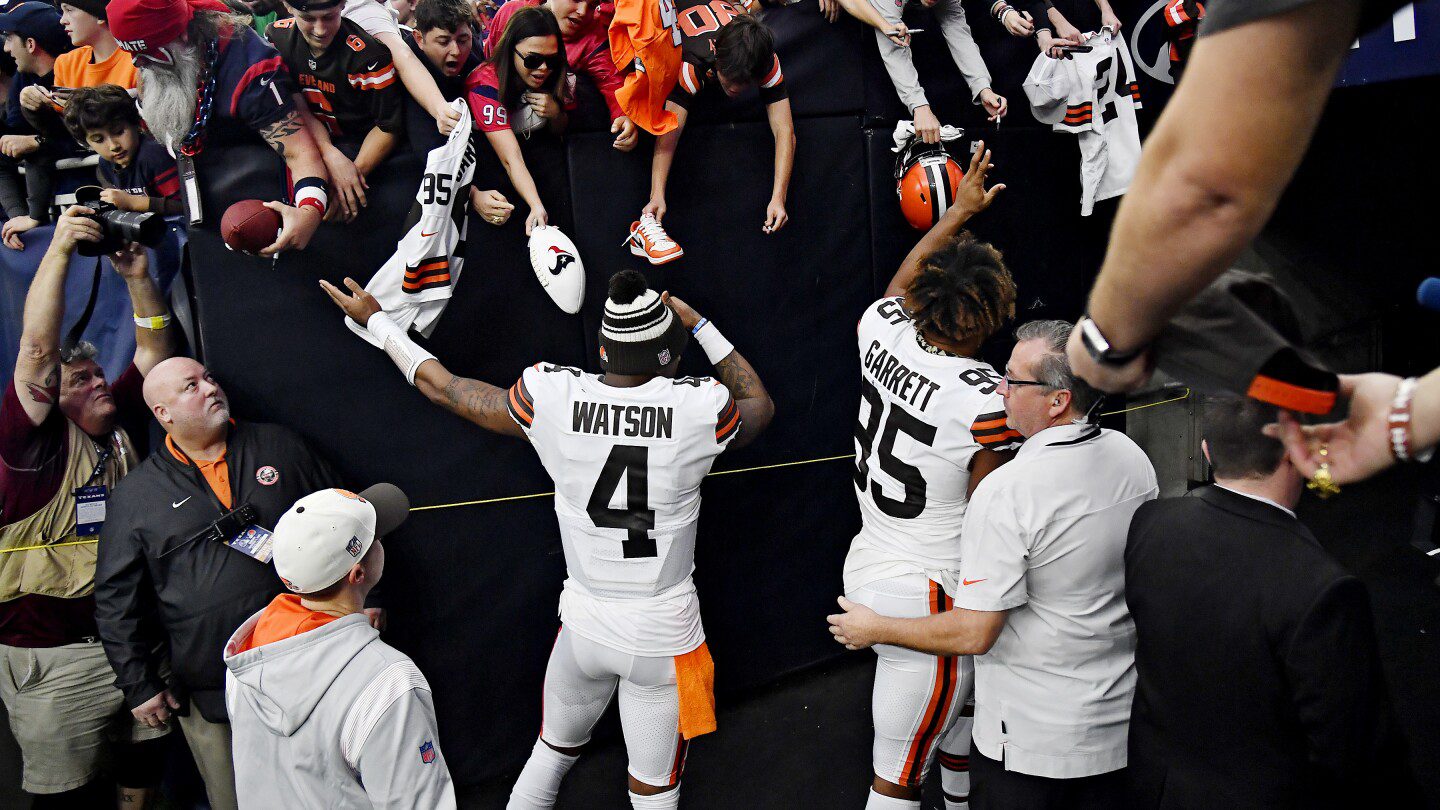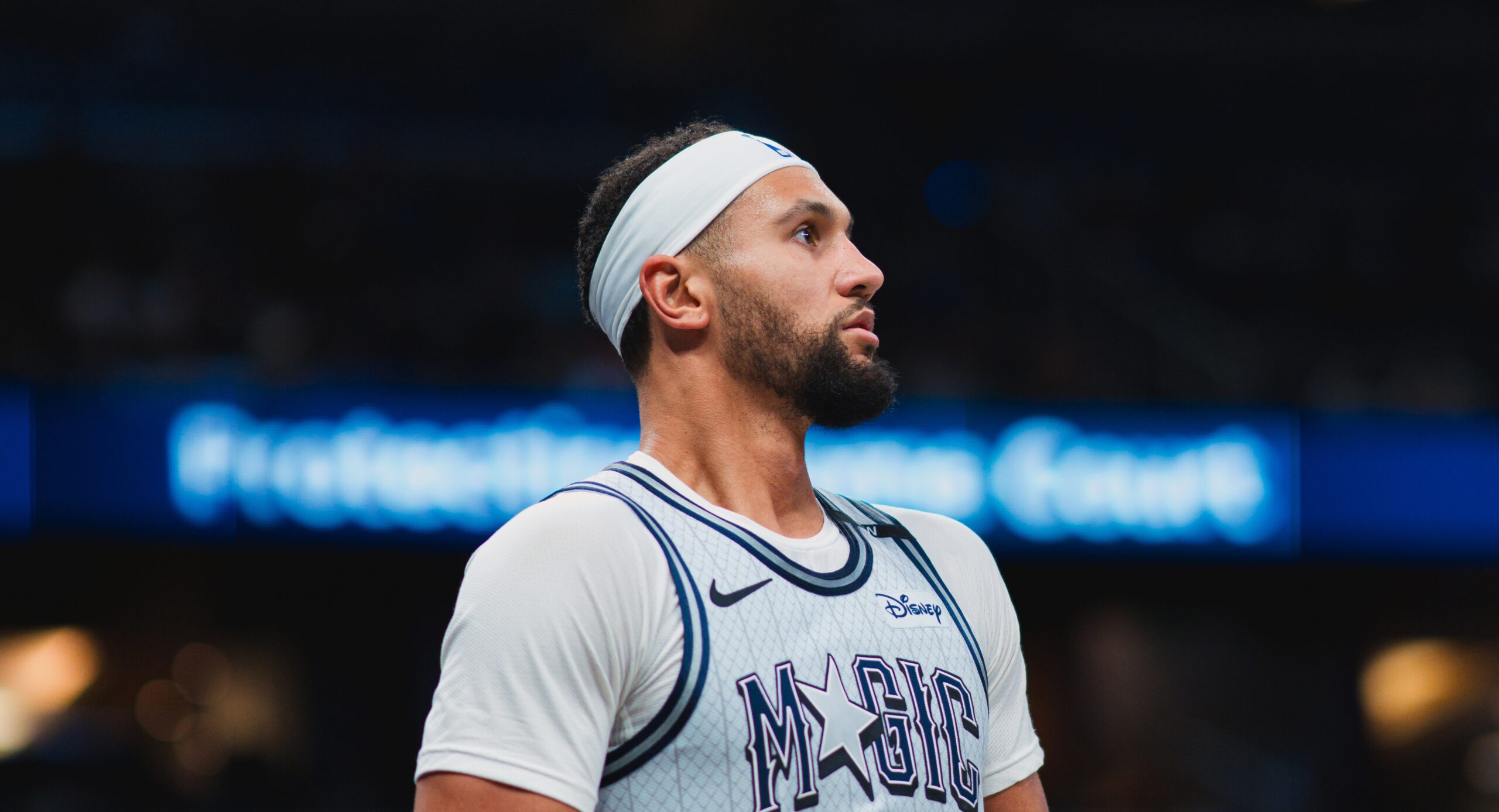
Myles Garrett, the standout defensive end, is keen on leaving Cleveland and remains steadfast in his trade demands.
While Browns owner Jimmy Haslam may choose to stand firm and deny Garrett his wish, there exists a strategic approach to simultaneously resolve two major issues.
The proposal might unfold like this: “To acquire Myles Garrett, you must also take Deshaun Watson.”
This deal would entail an additional commitment of $92 million, as the acquiring team would gain Garrett while assuming the remainder of Watson’s five-year, fully guaranteed $230 million contract.
The new franchise likely wouldn’t field Watson, especially with his chances of playing in 2025 diminishing after undergoing surgery last month for a re-torn Achilles tendon.
This scenario mirrors the Brock Osweiler trade the Browns executed seven years ago, where they took on $16 million in guaranteed salary in exchange for a second-round draft pick.
Should a new franchise take Watson as part of the deal for Garrett, the implications of the “Deshaun Tax” could lead to a reduction in draft pick compensation or diminish the team’s willingness to provide Garrett with a lucrative contract. However, if the Browns can create a competitive environment similar to what the Texans managed three years ago, where four teams (Browns, Panthers, Falcons, Saints) were pre-approved to negotiate with Watson, they could position Watson’s hefty contract as part of the minimal cost for discussing Garrett.
Would a playoff contender consider taking on Watson to secure Garrett? These negotiations could include a strategy aimed at persuading the Browns to absorb some of that $92 million liability, impacting both the draft compensation and Garrett’s potential contract. The initial focus would center on Watson’s contract and the draft picks owed to Cleveland, allowing finalists to present the best financial offers to Garrett.
Only a select number of true contenders could pull this off. Teams like the Commanders, who have considerable cap space for 2025, and the Chargers find themselves in similar positions. The Vikings and Lions might also manage this transition without significant drawbacks. For instance, the Vikings might rationalize investing in a quarterback who won’t play by highlighting J.J. McCarthy’s rookie deal, which averages less than $5.5 million annually.
Ultimately, a team poised on the brink of a Super Bowl victory would need to view Garrett as the pivotal player who could tip the scales in their favor. This franchise would also have to navigate the corporate narrative around inheriting the widely criticized Watson contract. It’s possible that the new team could consider releasing Watson immediately after finalizing the trade.
Additionally, while Watson does hold a no-trade clause, if it guarantees him his monetary compensation and provides an exit from Cleveland towards free agency in 2026, he may very well entertain the idea.
In any case, this unconventional strategy could be what it takes to entice Garrett away from the Browns. This would also require the Browns to confront the reality that the 2022 acquisition of Watson stands as one of the most questionable trades in the salary-cap era, perhaps even the most ill-fated transaction in NFL history.










